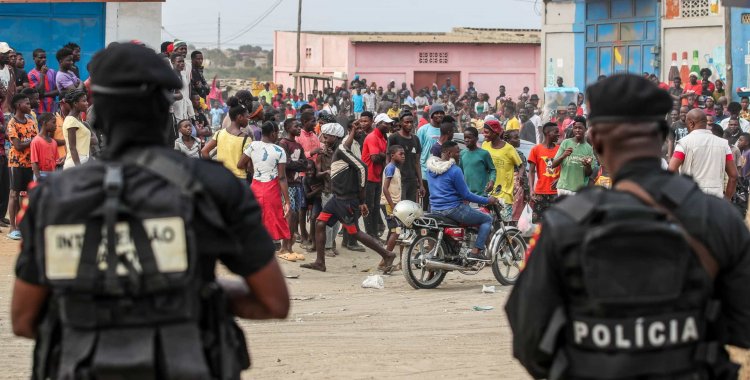The bill, which had been submitted to the National Assembly in the last legislature, but was only scheduled for discussion in the current legislature, was approved with 172 votes in favor of the five political parties with parliamentary seats.
The document justifies that the approval of this law will allow the establishment of objective criteria in the legal order for the exercise of freedom of assembly and demonstration by citizens, without the constraints that the current law imposes on the exercise of these freedoms.
The parliamentary group of the National Union for the Total Independence of Angola (UNITA) considers that the law that currently regulates the exercise of the right to assemble and demonstrate, approved on May 11, 1991, "is partially in supervening unconstitutionality", because its designation does not correspond to the designation given by 'LexMater' and because the Constitution of the Republic of 2010 does not impose authorization from any authority for the exercise of those freedoms.
"And, consequently, the use of the word authorization cannot be used either in law or in correspondence between authorities and citizens, based on legal command", underlines the project.
Freedom of assembly and demonstration is enshrined in article 47 of the Constitution of the Republic of Angola and establishes that "meetings and demonstrations in public places require prior communication to the competent authority, under the terms and for the purposes established by law".
"As the aforementioned prior communication is not necessarily a constitutive element of freedom of assembly and demonstration, the law is justified, naturally, to establish clear rules and procedures, not only to regulate the procedures and effects of communication between holders of law and public authorities, but especially to discipline behaviour, namely setting limits, preventing abuse and protecting the rights related to the exercise of freedom of assembly and demonstration", justifies the project.
The project emphasizes that the approval of this law will de facto consolidate the constitutional transition to the democratic regime initiated in 1991.
In discussions on the proposal, deputy Esteves Hilário, from the parliamentary group of the Popular Movement of Angola (MPLA), congratulated his UNITA colleagues on the initiative, but also criticized them for considering that "the proposed law presented is practically equal to the law is in effect".
"With the argument that the one in force is unconstitutional and now an equal law will come into effect, however, constitutional. This is strange", he ironized.
According to Esteves Hilário, UNITA carried out an exercise "which the Romans call 'veniri contra factu prorpis', which in popular language means blinking to the right, turning to the left".
"Because at various times it gave the impression that the proponent of this law is the MPLA and not UNITA", he stressed.
In responses, UNITA deputy Mihaela Weba rejected the claim that the project is the same as the law in force".
"Nothing could be more false. I must say that the good legislation dictates that, when you want to put a new law into force, which will revoke the old one, if the old one has positive points, they can actually be included in the new proposal, but it is not the same the text", he stressed.
Mihaela Weba stressed that the law in force, for example, has bodies in the state's local administration that no longer exist for over 30 years, such as political commissioners.
"Likewise, the focus of this diploma is on prior communication and the insistence that there should be no authorized demonstrations, because that is what the constitution imposes", he said, stating that regarding the fears presented about the limits, these "are duly safeguarded".







